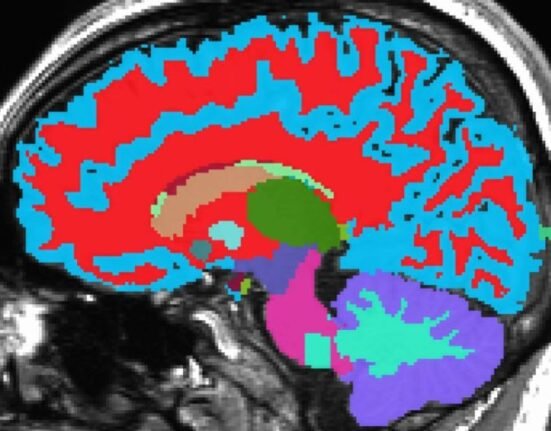Bharti Jayshankar
December 3, 2024: If you are overweight and have accumulated body fat around your belly in your middle years then you increase your chances of Alzheimer’s at a later age, according to recent research. This study, led by Dr. Mahsa Dolatshahi at Washington University School of Medicine, is a strong case for addressing obesity as a modifiable risk factor for Alzheimer’s disease.
The study pints that changes in brain health, including increased amyloid and tau accumulation, can begin as early as midlife—potentially 20 years before symptoms appear.
Study
The study involved 80 middle-aged individuals (average age 49) who were cognitively normal at the time of enrollment. Over half of the participants were classified as obese, with an average Body Mass Index (BMI) of 32.3. Researchers utilized positron emission tomography (PET) scans to measure brain levels of amyloid and tau proteins—hallmarks of Alzheimer’s disease—and magnetic resonance imaging (MRI) to assess visceral fat levels.
The findings indicated that higher levels of visceral fat were correlated with increased amyloid and tau levels in the brain. Notably, visceral fat accounted for approximately 77% of the obesity-related rise in amyloid levels, suggesting that this specific type of fat plays a crucial role in the pathophysiology of Alzheimer’s disease.
“The more amyloid or tau you have in the brain, the sicker the brain becomes,” said senior study author Dr. Cyrus Raji, associate professor of radiology at Washington University School of Medicine in St. Louis.
“The way we can track a sicker looking brain is lower blood flow,” Raji said. “We also saw brain atrophy, or a wasting away of gray matter, in a part of the brain’s memory center called the hippocampus.”
Broader context
The changes in brain compositions starts happening nearly two decades before any cognitive impairment symptoms. This underscores the need for early interventions targeting obesity and metabolic health to mitigate future Alzheimer’s risk.
The link between obesity and cognitive decline is not new; previous studies have established obesity as a risk factor for various neurodegenerative diseases. However, this research provides deeper insights into how specific types of body fat, particularly visceral fat, influence brain health.
Dr. Cyrus Raji, a senior author of the study, highlighted that managing Alzheimer’s risk will require addressing metabolic issues associated with higher body fat levels. He noted that lifestyle modifications, such as weight loss and improved diet, could significantly reduce visceral fat and potentially lower Alzheimer’s risk.
Other studies have corroborated these findings. For instance:
- Research from McGill University found that neurodegeneration caused by obesity mirrors that seen in Alzheimer’s disease, suggesting that weight loss could slow cognitive decline.
- A separate study indicated that increased visceral fat is linked to reduced cerebral blood flow, further complicating brain health and increasing dementia risks.
The World Health Organization has classified obesity as a global crisis, predicting that over half of the global population could be classified as overweight or obese within the next decade. In the U.S., projections suggest nearly 260 million Americans may fall into these categories by 2050 unless significant public health interventions are implemented. As obesity rates continue to rise, so too does the potential for increased Alzheimer’s disease prevalence. By focusing on reducing belly fat through lifestyle changes and medical interventions, there may be an opportunity to alter the trajectory of brain health for millions at risk.








